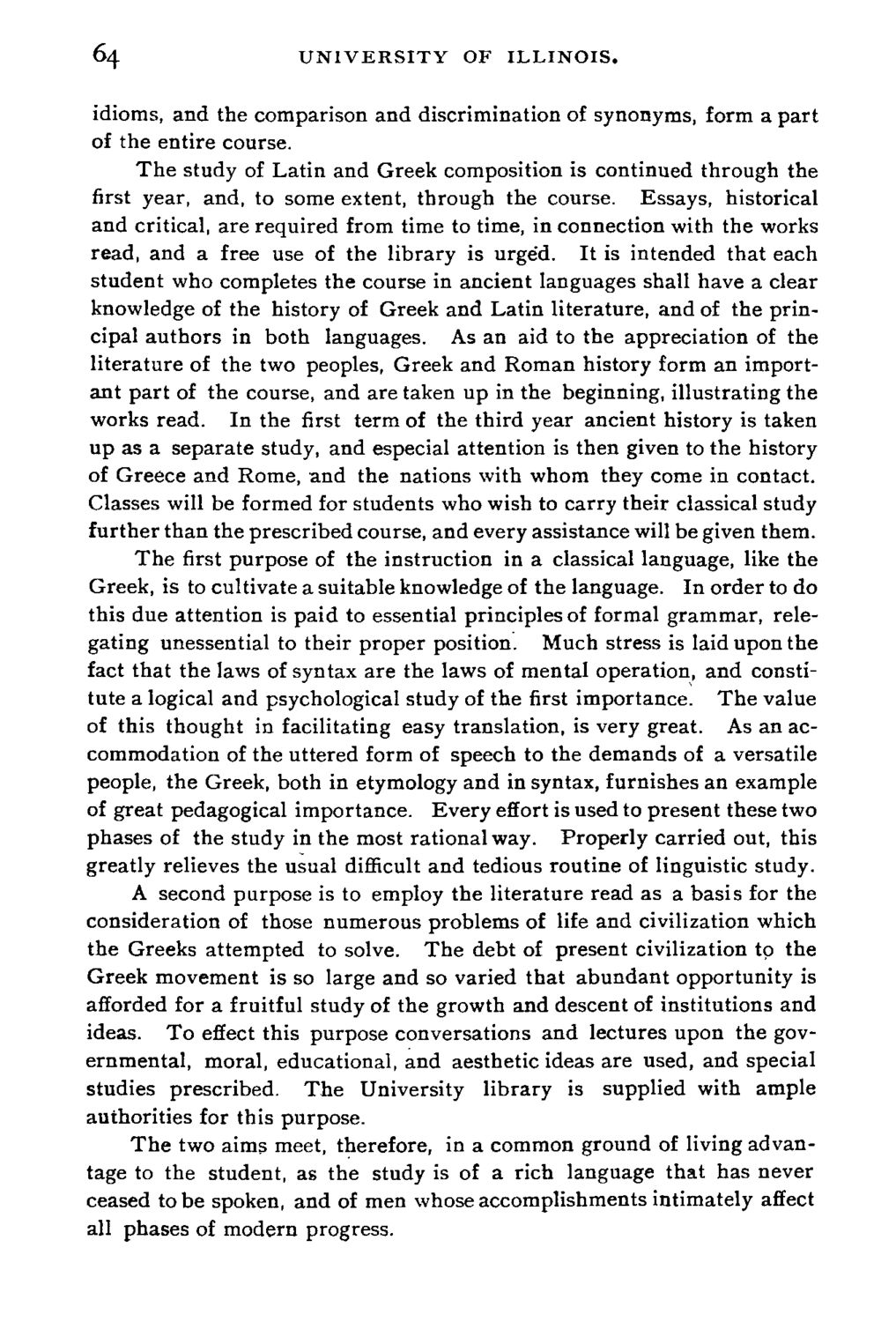| |
| |
Caption: Course Catalog - 1890-1891
This is a reduced-resolution page image for fast online browsing.

EXTRACTED TEXT FROM PAGE:
64 UNIVERSITY OF ILLINOIS. idioms, and the comparison and discrimination of synonyms, form a part of the entire course. The study of Latin and Greek composition is continued through the first year, and, to some extent, through the course. Essays, historical and critical, are required from time to time, in connection with the works read, and a free use of the library is urged. It is intended that each student who completes the course in ancient languages shall have a clear knowledge of the history of Greek and Latin literature, and of the principal authors in both languages. As an aid to the appreciation of the literature of the two peoples, Greek and Roman history form an important part of the course, and are taken up in the beginning, illustrating the works read. In the first term of the third year ancient history is taken up as a separate study, and especial attention is then given to the history of Greece and Rome, and the nations with whom they come in contact. Classes will be formed for students who wish to carry their classical study further than the prescribed course, and every assistance will be given them. The first purpose of the instruction in a classical language, like the Greek, is to cultivate a suitable knowledge of the language. In order to do this due attention is paid to essential principles of formal grammar, relegating unessential to their proper position. Much stress is laid upon the fact that the laws of syntax are the laws of mental operation, and constitute a logical and psychological study of the first importance. The value of this thought in facilitating easy translation, is very great. As an accommodation of the uttered form of speech to the demands of a versatile people, the Greek, both in etymology and in syntax, furnishes an example of great pedagogical importance. Every effort is used to present these two phases of the study in the most rational way. Properly carried out, this greatly relieves the usual difficult and tedious routine of linguistic study. A second purpose is to employ the literature read as a basis for the consideration of those numerous problems of life and civilization which the Greeks attempted to solve. The debt of present civilization to the Greek movement is so large and so varied that abundant opportunity is afforded for a fruitful study of the growth and descent of institutions and ideas. To effect this purpose conversations and lectures upon the governmental, moral, educational, and aesthetic ideas are used, and special studies prescribed. The University library is supplied with ample authorities for this purpose. The two aims meet, therefore, in a common ground of living advantage to the student, as the study is of a rich language that has never ceased to be spoken, and of men whose accomplishments intimately affect all phases of modern progress.
| |